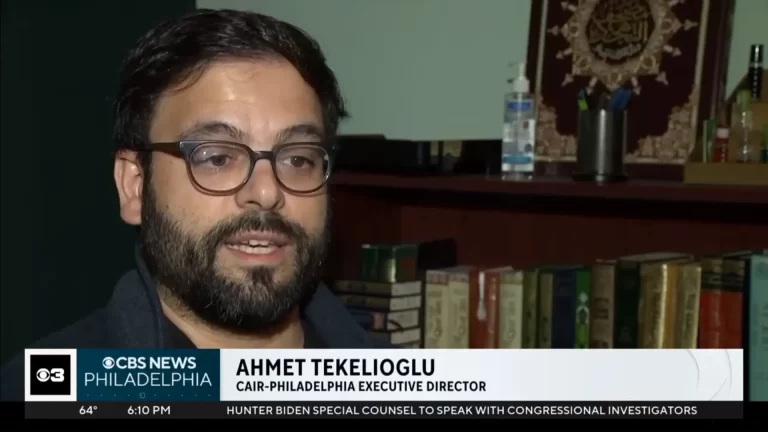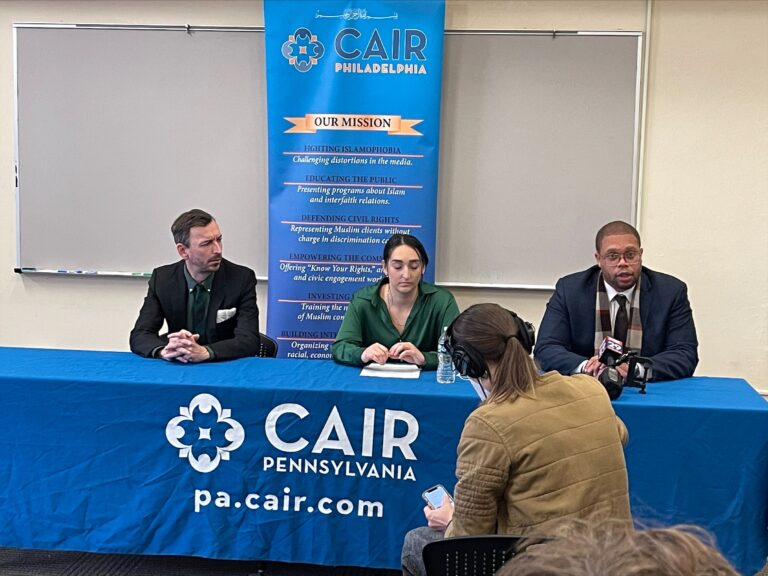![]()
by Colby Itkowitz
The Morning Call
Ten years after the Sept. 11 terrorist attacks, people in the Lehigh Valley aren’t very nervous about a second attack and are much less fearful of flying, but their wariness of “individuals of Arab origin” has increased.
In the immediate aftermath, as people watched over and over the images of one plane and then another crashing into the World Trade Center towers in lower Manhattan, fear was widespread.
At that time, close to a third of Lehigh Valley residents were very concerned that they or a family member would be a victim of a terrorist attack in the future and just 3 percent said they were not concerned at all. In subsequent years, as each anniversary came and went without incident, people’s worries dissipated. (Read the full survey results.)
Today, only 14 percent are very worried they or their family will be victims, and 16 percent are not concerned at all, according to a new Morning Call/Muhlenberg College poll of 421 residents in Lehigh and Northampton counties.
Since September 2001, Muhlenberg has surveyed Lehigh Valley residents six times to gauge their feelings about the nation’s security and their own safety. The region lost 15 people that morning.
Chris Borick, the college’s pollster, said the Lehigh Valley may not have the emotional attachment to Sept. 11 that New York does, but it has a closer association than most other parts of the country. A decade of relative peace within the United States has tempered anxiety locally.
One man surveyed, James Silberman, 66, a retired Bethlehem Steel worker from Allentown, said he doesn’t worry about terrorist attacks.
“Maybe right afterward yes, but maybe a year or so later it didn’t bother me anymore,” he said.
One of the largest shifts is people’s attitudes toward flying. Right after the attacks, a majority of people in the Lehigh Valley — 62 percent — said they were less willing to travel by airplane. Although there have been threats to air travel as recently as the attempted bombing of a jetliner on Christmas 2009, people are much more comfortable flying. But about a third of those surveyed in the Lehigh Valley still remain wary of air travel.
Those 31 percent, Borick said, represent the lingering effects of Sept. 11.
Another impact is how people view “individuals of Arab origin [who] are citizens or residents of the United States.”
When asked if the attacks affected their view of Arabs, more people now said yes than 10 years ago. In 2001, 21 percent said yes, compared with 33 percent today. The number spiked even higher — 39 percent — in 2006, the eve of the deadliest period of the Iraq war.
Moein Khawaja, executive director of the Philadelphia chapter of the Council of American-Islamic Relations, also has seen an uptick in anti-Muslim sentiment. Twenty-five percent of federal employment discrimination cases are from Muslim-Americans, he said.
He also said the council has heard from Muslim students in eastern Pennsylvania who said they were made uncomfortable at school. In one case, a teacher made an anti-Islam remark and the student did not want to go back to class, Khawaja said.
President Barack Obama has been attacked verbally for being a Muslim, although he is not. Khawaja said that shows that prejudice against Arabs and Muslims is more acceptable than comments about the president’s race.
Despite Obama’s low approval rating — only 37 percent of Lehigh Valley respondents approve of the overall job he’s doing as president — he’s considered better at securing the country than Bush was five years after Sept. 11.
In 2006, 52 percent disapproved of how Bush was handling homeland security. Of course, that was during the height of the unpopular war in Iraq. This month, 51 percent approve of how Obama is handling security. Obama is credited with making the call to kill Osama bin Laden.
But Dorothy Livingston, 66, a retired legal secretary from Bethlehem, doesn’t believe Obama is doing enough to keep the nation safe. She worries about someone carrying a bomb onto public transportation, or a tour bus.
“I think there’s a real good possibility that it could happen again,” she said. “Maybe not of that magnitude, or maybe something bigger.”
Nearly half of the respondents think neither the United States nor the terrorists are “winning” the war on terrorism. And 69 percent think another act of terrorism is either very or somewhat likely in the next year, though nearly half do not believe it will be on the scale of Sept. 11.
However, the number of people who believe such a large attack is likely to occur increases when asked if there will be one in the next decade.
“We feel comfortable right now, we probably don’t think it’s going to happen in the next days,” Borick said. “But there is this recognition that something like this will very well be in our future and that’s a fairly sobering view.”





